Today (December 30), Blue C officially announced the “Report on measuring the maturity level of corporate culture implementation 2024 and trends 2025”. The report was conducted based on a survey of 206 Vietnamese enterprises in 13 industries.
Today (December 30), Blue C officially announced the “Report on measuring the maturity level of corporate culture implementation 2024 and trends 2025”. The report was conducted based on a survey of 206 Vietnamese enterprises in 13 industries.
Banks continue to lead in corporate culture maturity
According to the survey, in 2024, the majority of businesses participating in the survey (46.12%) have a maturity level of level 3 - Design Level. At this level, businesses have shaped the core foundation (Vision, Mission, Core Values) and started to build action plans to turn the principles, beliefs, and values that the business believes in into reality.
However, the gap between planning and concrete actions to apply corporate culture to organizational processes and transform awareness into practical actions is still quite large.
The highlight of corporate culture implementation in 2024 is the increasing maturity of enterprises. Enterprises are increasingly interested in organizational culture, most clearly demonstrated in leaders' awareness of the importance of corporate culture and the shaping of corporate culture foundations.
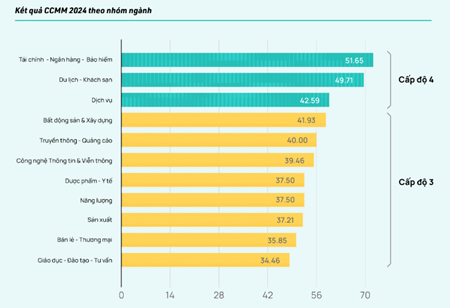 |
| 2024 is the second consecutive year that finance - banking - insurance is in the leading position in the ranking of 11 industry groups. |
The finance - banking - insurance industry group has an impressive level of maturity in implementing corporate culture. Enterprises in this group continue to lead the rankings with an average score of 51.65 points, equivalent to level 4 (Management level).
This is the second consecutive year that finance - banking - insurance is in the leading position in the ranking of 11 industry groups.
In the context of digital transformation becoming an urgent requirement for Vietnamese enterprises to maintain their competitive advantage, digital culture has also received more attention. However, in 2024, the level of expression of digital culture characteristics was only average to above average. This shows that most enterprises still have difficulty in creating an environment that supports and promotes strong digital transformation in the organization.
By industry group, businesses in the three groups of finance - banking - insurance, services, tourism - hotels are the three industry groups with the highest level of expressing Digital Culture characteristics, most clearly in the characteristics of "Customer-centric" and "Data-based orientation".
5 prominent corporate culture trends in 2025
Mr. Le Quang Vu, CEO of Blue C, said: "The year 2025 will witness a clearer shift, where corporate culture does not only stop at building a foundation but also becomes a strong driving force to support businesses in sustainable development and adapt to the constant changes of the times."
 |
| Mr. Le Quang Vu, CEO of Blue C. |
Based on research results and surveys of 206 businesses, Blue C has identified and analyzed 5 prominent corporate culture trends in 2025.
First, support employees to adapt to change during the transition period. A survey by PwC (June 2024) in Asia-Pacific, including Vietnam, showed that 68% of employees experienced many changes in their work, 48% had to learn new technology and faced increased workload. In this context, supporting employees to adapt to change will be a top priority for Vietnamese businesses in 2025, contributing to maintaining performance and sustainability.
Second, culture is becoming an important factor driving digital transformation and is increasingly being paid attention to. Blue C's survey shows that more than 1 in 3 businesses will set digital culture as a priority goal in 2025. Outstanding features including: Customer-centricity, Data-driven, Innovation, Collaboration and Sustainable Development will soon become important keywords in building corporate culture in 2025.
Third, increase training on the use of artificial intelligence (AI) in the workplace. AI will continue to be a major trend in 2025, posing a major challenge to workers' skills and adaptability. Despite strong investment in AI by leaders, Gallup's survey found that nearly 70% of employees still do not use AI, and the number of people who feel comfortable with this technology has decreased by 6% from 2023 to 2024. This shows that AI adoption is not clearly oriented and lacks support from businesses. To optimize AI, businesses need specific training plans and job solutions for employees redundant due to automation.
Fourth, rebuilding culture and maintaining work motivation during and after streamlining the apparatus. The Government's policy of streamlining the payroll will create a large amount of surplus personnel for the labor market in 2025. This is both a challenge and an opportunity for private enterprises to attract highly qualified personnel, but it is necessary to focus on cultural integration for new personnel. Public organizations, after streamlining, need to rebuild culture, strengthen internal trust, encourage consensus and invest in personnel training to maintain efficiency.
Fifth, focus on care in the workplace. In today's volatile work environment, the level of care an organization shows its employees is becoming a key factor in employee retention.
The challenge in 2025 is to close the gap between the benefits your company provides and the actual needs of your employees. Putting care at the heart of your culture strategy increases employee growth by 378% and reduces it by 80% when it is not cared for. Well-supported employees are less likely to burn out, 12 times more likely to be engaged, and 7 times more likely to perform well, delivering huge benefits to your business.
Source: https://baodautu.vn/5-xu-huong-van-hoa-doanh-nghiep-noi-bat-trong-nam-2025-d237117.html



![[Photo] Opening of the 44th session of the National Assembly Standing Committee](https://vstatic.vietnam.vn/vietnam/resource/IMAGE/2025/4/14/03a1687d4f584352a4b7aa6aa0f73792)


![[Photo] Touching images recreated at the program "Resources for Victory"](https://vstatic.vietnam.vn/vietnam/resource/IMAGE/2025/4/14/99863147ad274f01a9b208519ebc0dd2)
![[Photo] General Secretary To Lam chairs the third meeting to review the implementation of Resolution No. 18-NQ/TW](https://vstatic.vietnam.vn/vietnam/resource/IMAGE/2025/4/14/10f646e55e8e4f3b8c9ae2e35705481d)


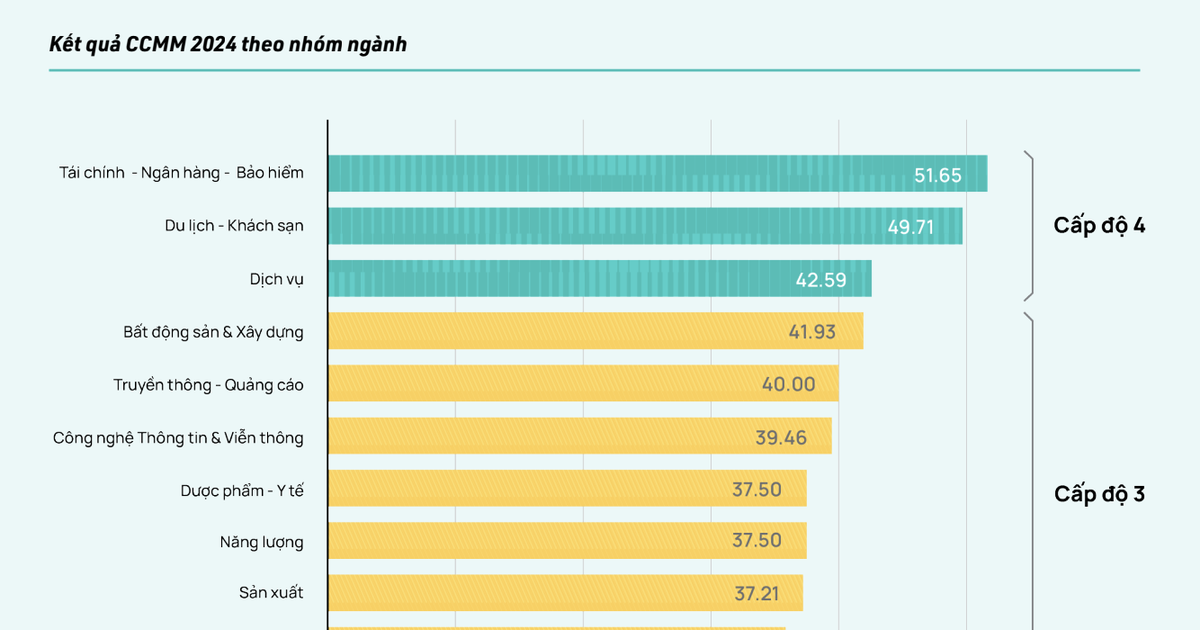

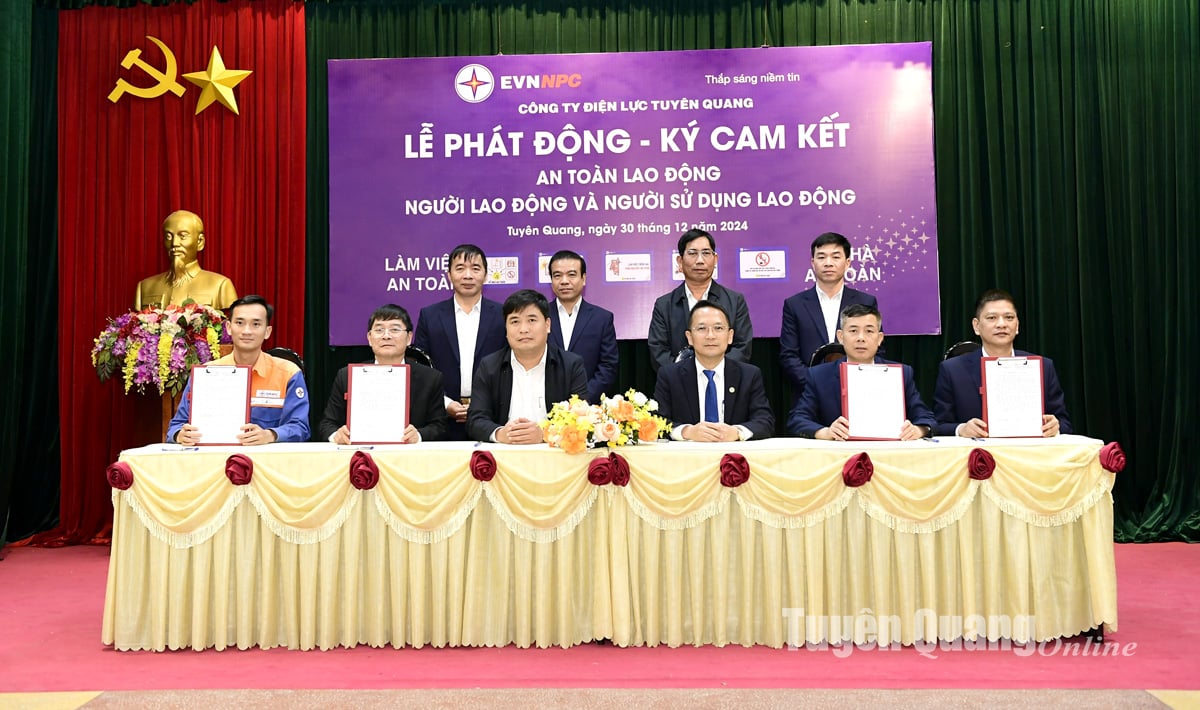


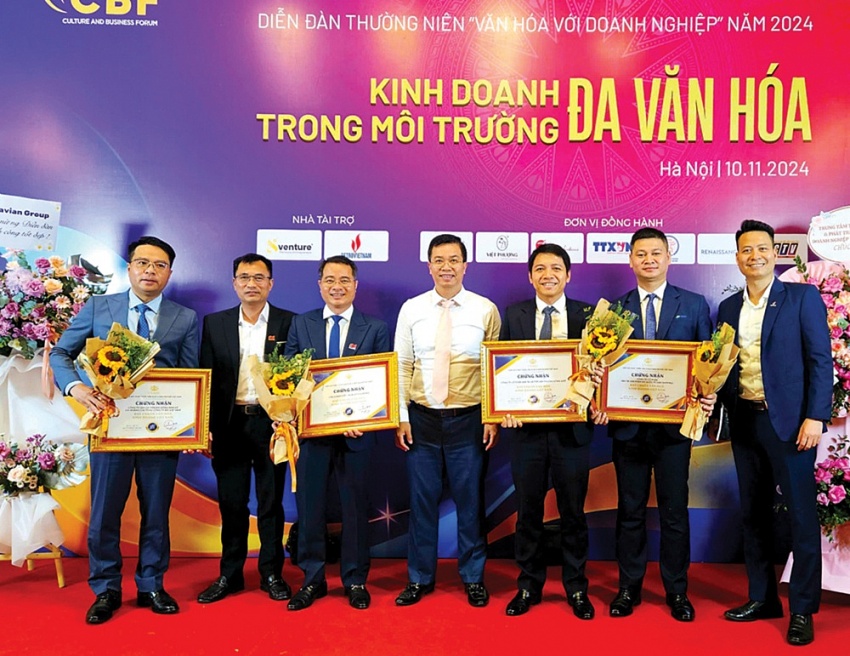






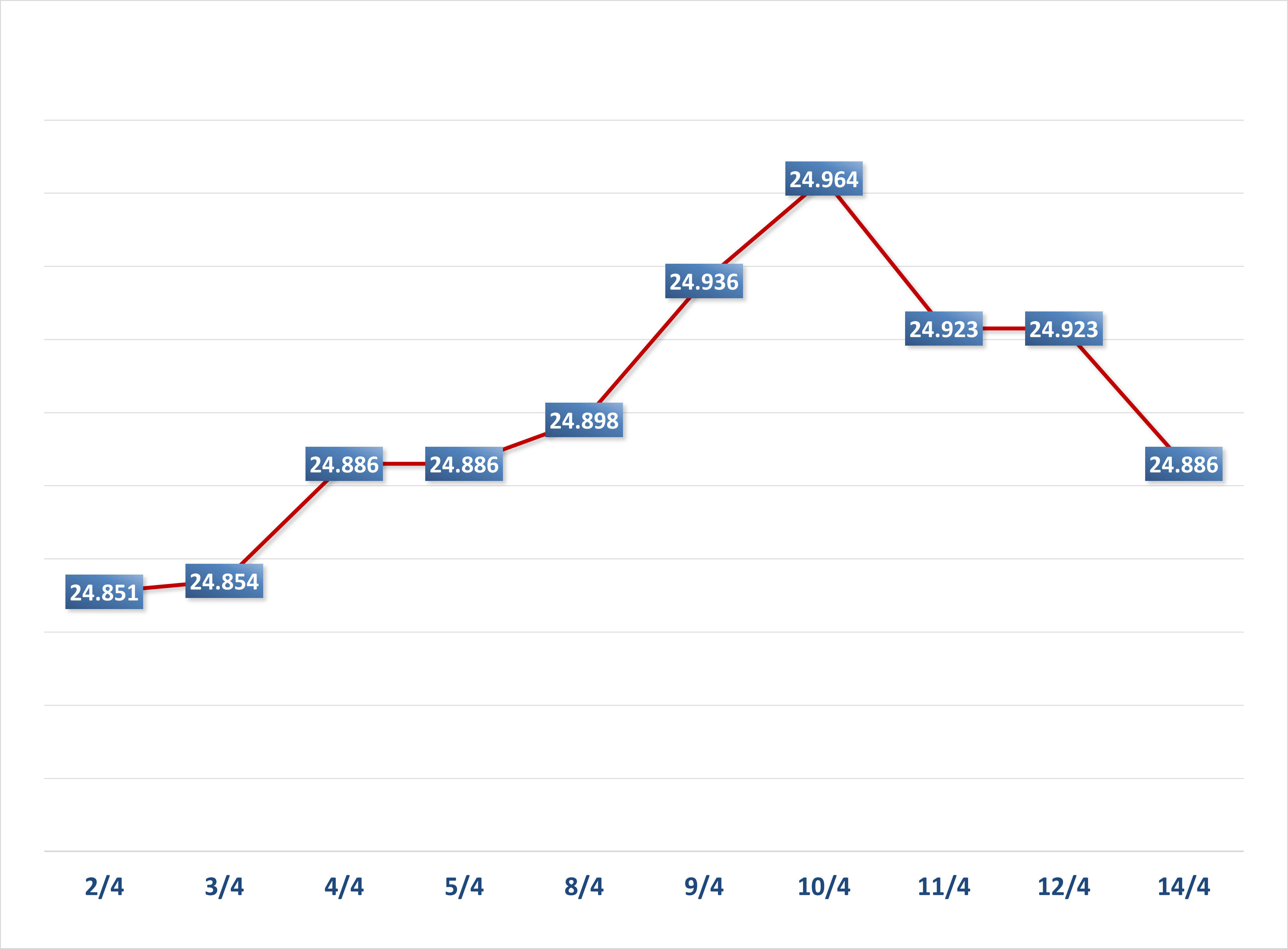















































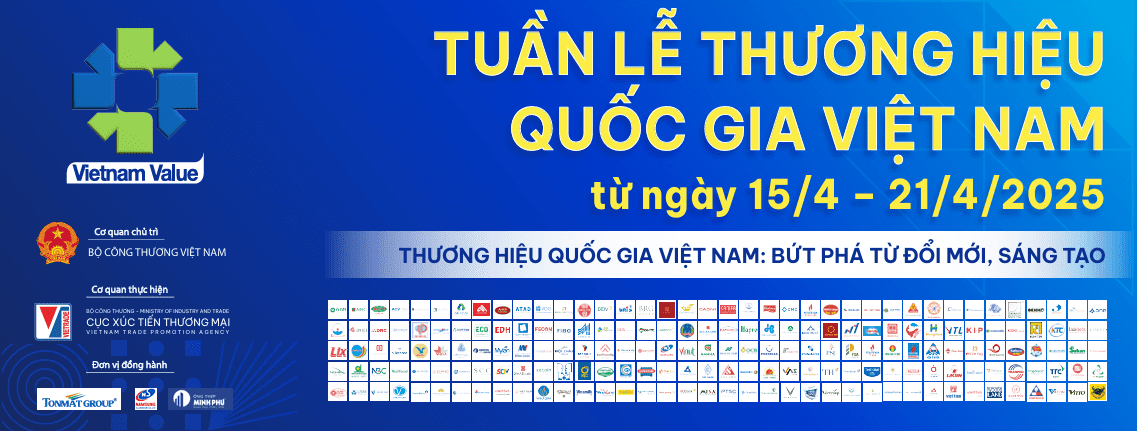

























Comment (0)